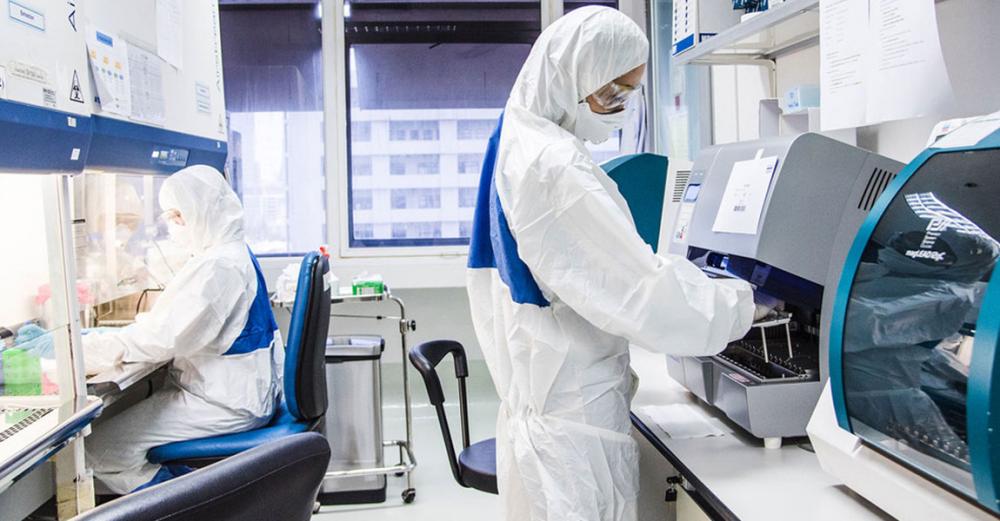Just Earth News | @justearthnews | 09 Oct 2020, 05:02 pm Print

WHO/P. Phutpheng
New York: The COVID-19 pandemic has shown that “our health systems are inadequate”, the UN chief told a ministerial meeting on Thursday, citing weak structures and unequal access to healthcare as “major reasons” why the coronavirus has killed one million people and infected more than 30 times that, globally.
Painting a gloomy picture of under-investment in health, Secretary-General António Guterres said in his video message to senior ministers: “Universal Health Coverage is not only essential to end the pandemic, it will also drive progress across all health-related SDGs [Sustainable Development Goals]”.
‘Global public good’“COVID-19 has made the need for Universal Health Coverage…more urgent than ever”, the UN chief upheld, reminding that it is also a major recommendation in the policy brief that he launched just a day earlier.
Other recommendations in the policy guidance include strengthening public health measures; coordinating a global pandemic response; and protecting other health services during the pandemic, including mental health and sexual and reproductive health programmes.
“We also call for funding for the groundbreaking ACT-Accelerator initiative to ensure everyone, everywhere, has access to future COVID-19 vaccines, tests and treatment”, Mr. Guterres said, adding that it should be seen as “a global public good”.
The Secretary-General said he hoped the meeting would “build momentum for urgent action” to transform policies and systems to deliver health and human security for all.
‘Urgency, determination and innovation’
The World Health Organization (WHO) reiterated that COVID-19 has eroded decades of progress towards ensuring that everyone, everywhere can get the health care they need without experiencing financial hardship.
Investing in stronger health systems is not only crucial in responding to the coronavirus but also to protect people from future health threats and make health for all a reality.
WHO chief Tedros Adhanom Ghebreyesus said that the pandemic has “exposed the geopolitical fault lines of our world” and strained the solidarity “so badly needed” to address the “shared global crisis”.
But far from derailing efforts to achieving universal coverage, “the pandemic must drive us to forge ahead with even more urgency, determination and innovation”, he told the virtual meeting.
The WHO chief reminded nations that investing in health is not optional, but instead “the foundation for stable, prosperous and peaceful foundations and economies”.
Promoting and protecting health also promotes and protects jobs, education, peace, sustainability and more, he stressed.
While acknowledging the crises caused by COVID-19, Tedros said that it must be a turning point, “a catalyst for making universal health coverage a reality”.
“The only way forward is together, working in solidarity for a healthier, safer and fairer world, as if it was a matter of life and death, because it is”, the top UN health official spelled out.
- New hybrid Mpox strain surfaces in UK and India — WHO sounds global alert
- Deadly weight: Obesity now responsible for 1 in 10 infection deaths worldwide
- Coffee and tea: This everyday drink may help protect your brain from dementia
- Happy Chocolate Day! The sweet secret behind chocolate’s hidden benefits
- Cambridge study finds menopause affects memory, mood, and sleep





-1763561110.jpg)
